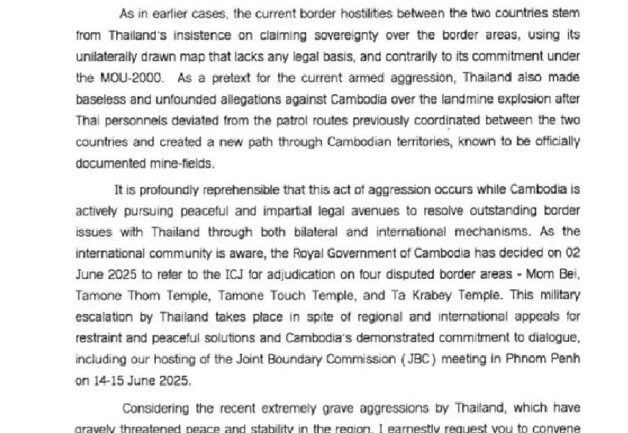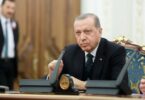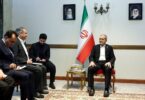After several weeks of simmering tensions between Thailand and Cambodia, clashes have broken out between the two nations.
According to several reports, Cambodian drones were reportedly sighted near Dangrek border. This led to an escalation between the two nations, followed by exchanges of gunfire, rocket attacks, and airstrikes involving F-16 fighter jets.
Both nations claim sovereignty over the areas where the incidents occurred (near the Emerald Triangle region) which houses ancient temple complexes like the Preah Vihear and Ta Muen Thom temples.
Decades of tensions between the two nations has reignited into a conflict since February 2025. Several incidents since February have compounded into outright clashes between the military troops of both countries.
On 13 February 2025, according to various reports the Thai soldiers stopped Cambodian tourists from singing the Cambodian national anthem at the disputed Prasat Ta Muen Thom temple. This exacerbated the already brewing tension between Thailand and Cambodia.
On 28 May 2025, Cambodian and Thai troops exchanged fire against each other which led to the death of one Cambodian soldier.
Cambodian Prime Minister Hun Manet tried to approach the ICJ in this regard in order to avoid the conflict with Thailand. In response the Thai Minister of Defence, Phumtham Wechayachai, also confirmed Thailand’s decision to not escalate the conflict and to seek a pragmatic solution to resolve the issue.
The Cambodian PM has addressed a letter to Ambassador Asim Iftikhar Ahmad, Pakistan’s Permanent Representative to the United Nations and President of the Security Council for July 2025, citing series of alleged armed attacks by Thailand.
The Cambodian PM has addressed a letter to Ambassador Asim Iftikhar Ahmad, Pakistan’s Permanent Representative to the United Nations and President of the Security Council for July 2025, citing series of alleged armed attacks by Thailand.
Chronology of events leading to conflict (24 July 2025)
On 29 May 2025, both militaries from Cambodia and Thailand met.
On 16 July 2025, three Thai soldiers were injured after one of them stepped on a landmine in a disputed area.
3 July 2025, reports of another land mine blast in a contested area injured five Thai soldiers, which resulted in one losing a leg. In response, Thailand recalled its ambassador to Cambodia and closed all border crossings with its neighbour. This followed the armed conflict between the two nations on 24 July 2025.
The Royal Thai Army has condemned Cambodia over the landmine incident at Chong An Ma, Nam Yuen District, Ubon Ratchathani, that injured 5 soldiers, 1 severely. The Army has prepared under the "Chakraphong Phuwanat" plan. This violates international humanitarian principles. pic.twitter.com/7xG1mlNmG5
— PR Thai Government (@prdthailand) July 23, 2025
Thai and Cambodian political Reactions
While both nations have claimed to have responded in self defence, Thailand has accused Cambodia of violating the Ottawa Treaty. The treaty predominantly focuses on anti-personnel landmines, which detonate by the presence, proximity, or contact of a person. The Ottawa Treaty, also known as the Convention on the Prohibition of the Use, Stockpiling, Production and Transfer of Anti-Personnel Mines and on their Destruction, is an international agreement which aims to eliminate anti-personnel landmines.
In accordance with the agreement, all the signatories are responsible for the destruction of all stockpiled anti-personnel mines within four years of ratification, and to clear mined areas within ten years, with plausible extensions. Since both Thailand and Cambodia have been a state party to the international Ottawa Mine Ban Treaty, the recent land mine incident on 23 July has been pointed as a violation of the agreement on Cambodia’s part by Thailand. Post the landmine incident and the drone sightings, Thailand responded by deploying the F-16 fighter jets and launched airstrikes against Cambodian military near the Ta Muen Thom temple.
Cambodia has also responded with heavy artillery and rocket fire. There have been reports of several civilian areas being hit in Thailand’s Si Sa Ket province.
Thailand’s Prime Minister Paetongtarn Shinawatra was suspended in early July and may be expected to be dismissed due to info leak of a phone call she had with Cambodia’s powerful former leader Hun Sen. According to sources the PM criticized Thai army’s actions in the dispute between the two countries.
The 500-mile (800-kilometer) land border between both nations, which was mapped by France during its colonization of Cambodia has been a consistent reason for skirmishes between the nations.
Cambodia uses the 1907 map to assert its claims over the disputed land while Thailand disputes the accuracy of the French map.
The other factor for the dispute between the two nations stems from the International Court of Justice (ICJ) in 1962, awarding the 11th-century Preah Vihear temple to Cambodia as well.
Thailand’s caretaker Prime Minister Phumtham Wechayachai has called off all negotiations with Cambodia until the latter ceases the fighting along the border ends. He has also specified there is no call to war.
Cambodia previously said a Thai F-16 fighter jet dropped two bombs on a road. There was no immediate information on casualties on the Cambodian side.
The Cambodian Prime Minister Hun Manet has requested Cambodian citizens residing in Thailand to “maintain their morality and dignity” and to return home if they are “facing pressure from discrimination.”
According to Khmer Times, the former Prime Minister Hun Sen, now serving as President of the Supreme Privy Council to the King, has taken an active role in commanding military operations via video communication, alongside Prime Minister Hun Manet.
“Samdech Techo is currently commanding the army via video system in Cambodia, alongside the Prime Minister, the Minister of National Defence, the Commander-in-Chief of the Armed Forces, and all levels of armed forces, to strike back against the invading Siamese. He is not running away anywhere,” said Chea Thyrith, Mr Hun Sen’s spokesperson.
The Thai government has called for “international condemnation” of Cambodia in a statement posted on its official Facebook page.
Jirayu Houngsub accused Cambodia of “being a war-monger that violates human rights by persistently using heavy weapons against civilians. https://www.nationthailand.com/news/asean/40052972
The former leader of Cambodia, Hun Sen has also stated that the country had “no choice but to fight back” against Thailand. He further added “The invasion, as the Thai military said it would close down the Ta Moan Thom Temple today, which was ordered yesterday, Thai soldiers have now begun attacking the Cambodian army,” Hun Sen said on Facebook this morning. “The Cambodian army has no choice but to fight back and strike back.”
https://www.facebook.com/share/p/1E9FibZ7e9/
Conclusion
Thailand and Cambodia have Bilateral relations which date to the 13th century during the Angkor Era. The Thai Ayutthaya Kingdom gradually replaced the Khmer Empire from the 14th century, while the French protectorate separated Cambodia from modern Thailand between 19th–20th centuries, and later, formal diplomatic relations between the sovereign states were established on 19 December 1950. However, the relations between the two countries remain unstable due to the Incomplete demarcation of their boundaries
Also, Cambodia’s internal conflicts between 1970s to 1980s has spilled over into Thailand, which received refugees but also gave indirect support to the Khmer Rouge led by the Maoist dictator Pol Pot (Saloth Sâr). Other factors responsible for the simmering tensions are also due to the nationalist ideologies from with in the two nations over the shared cultural heritage which have also sparked violence in the past. Example - a mob attack on the Thai Embassy in Phnom Penh in 2003, which deteriorated the relations between the two nations.
In 2009, the relations between Cambodia and Thailand further deteriorated owing to the Cambodian government’s support of former Thai Prime Minister Thaksin Shinawatra. In response Cambodia also terminated relations (represented by its embassy in Bangkok) twice in 1958 and 1961, in the previous Preah Vihear conflict.
At the moment of writing, the conflict is unlikely to transform into a war and may require open dialogue and possible international mediation to appease the matter. A probe of Cambodia’s Ottawa treaty breach may be essential with a joint consensus between the two nation to restrict further escalation to maintain the harmony in the region.














